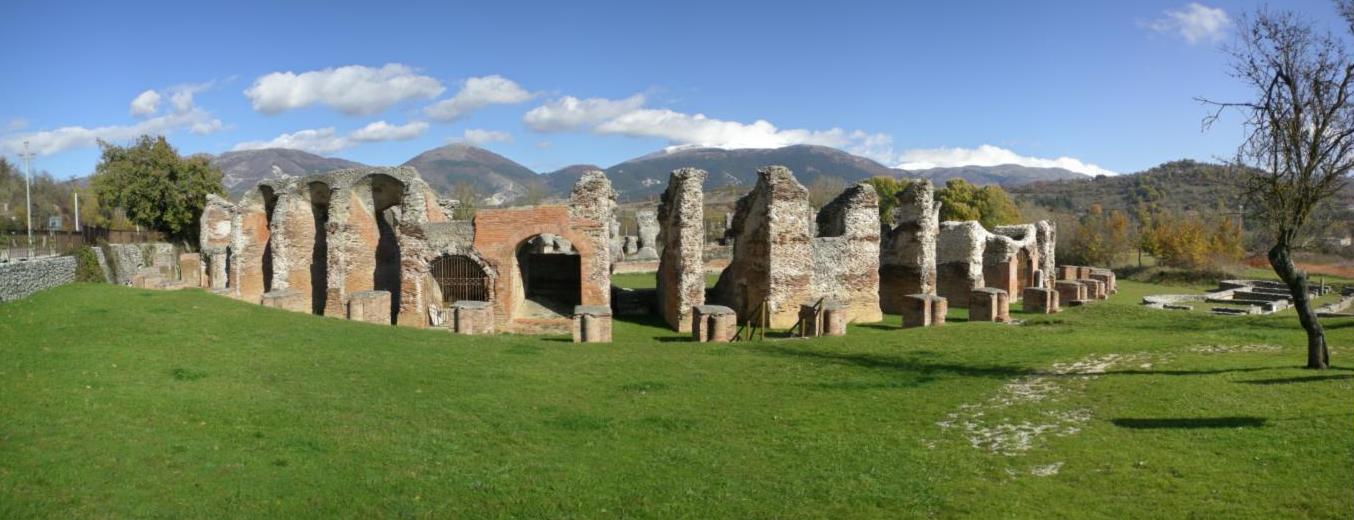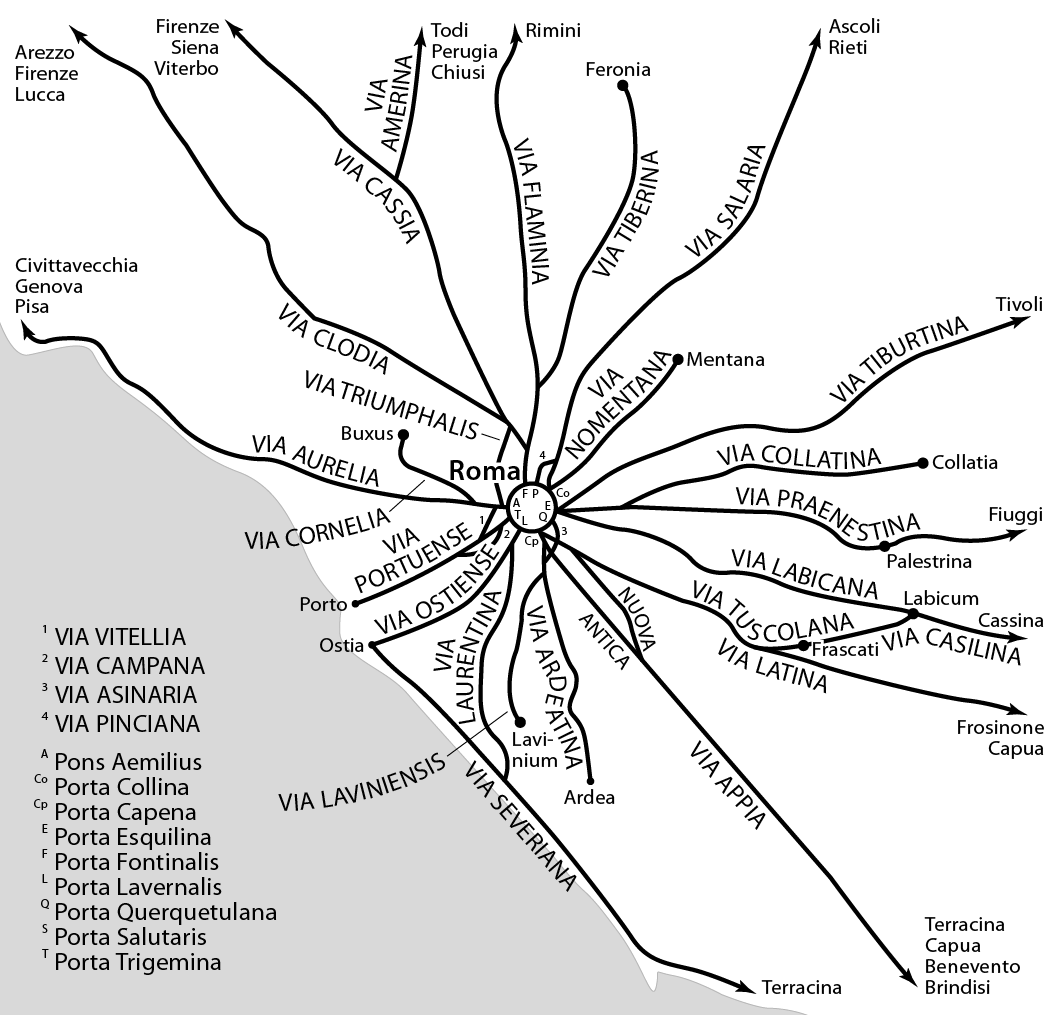|
Reate
Rieti (; , Sabino: ) is a town and ''comune'' in Lazio, central Italy, with a population of 47,700. It is the administrative seat of the province of Rieti and see of the diocese of Rieti, as well as the modern capital of the Sabina region. The town centre stands on a small hilltop, commanding from the southern edge the wide Rieti valley, at the bottom of the Sabine hills and of monti Reatini, including mount Terminillo. The plain was once a large lake, drained by the ancient Romans, and is now the fertile basin of the Velino River. Only the small Ripasottile and Lungo lakes remain of the larger original. History Prehistory According to the legend, Reate was founded by Rea, a divinity (that would be the origin of the town name). It was founded at the beginning of the Iron Age (9th–8th century BC). Probably in earlier times the lands around Rieti were inhabited by Umbri, then by Aborigines and later on by Sabines, who reached the lands sited in the nearby of Tevere r ... [...More Info...] [...Related Items...] OR: [Wikipedia] [Google] [Baidu] |
Aborigines (mythology)
The Aborigines in Roman mythology are the oldest inhabitants of central Italy, connected in legendary history with Aeneas, Latinus and Evander. They were supposed to have descended from their mountain home near Reate (an ancient Sabine town) upon Latium, where they expelled the Sicels and subsequently settled down as Latini under a King Latinus.Dr. Leonhard Schmitz ''A History of Rome, From the Earliest Times to the Death of Commodus, A.D. 192.'' p.8-9 Dionysius of Halicarnassus. ''Roman Antiquities'', I.9. Etymology The most generally accepted etymology of the Latin word aborigines is that it derives from ', according to which they were the original inhabitants of the country, although Cato the Elder regarded them as Hellenic immigrants, not as a native Italian people. For this reason, scholars have argued that the word actually has a pre-Latin origin, which has been lost, and ' is an example of etymological reinterpretation. Other etymological explanations suggested ... [...More Info...] [...Related Items...] OR: [Wikipedia] [Google] [Baidu] |
Diocese Of Rieti
The Diocese of Rieti () is a Latin Church ecclesiastical territory or diocese of the Catholic Church in Italy. It is immediately exempt to the Holy See."Diocese of Rieti (-S. Salvatore Maggiore)" ' Catholic-Hierarchy.org''. David M. Cheney. Retrieved February 29, 2016."Diocese of Rieti" ''GCatholic.org.'' Gabriel Chow. Retrieved February 29, 2016. Its is in St. Mary Cathedral in the |
Sabines
The Sabines (, , , ; ) were an Italic people who lived in the central Apennine Mountains (see Sabina) of the ancient Italian Peninsula, also inhabiting Latium north of the Anio before the founding of Rome. The Sabines divided into two populations just after the founding of Rome, which is described by Roman legend. The division, however it came about, is not legendary. The population closer to Rome transplanted itself to the new city and united with the preexisting citizenry, beginning a new heritage that descended from the Sabines but was also Latinized. The second population remained a mountain tribal state, coming finally to war against Rome for its independence along with all the other Italic tribes. Afterwards, it became assimilated into the Roman Republic. Etymology The Sabines derived directly from the ancient Umbrians and belonged to the same ethnic group as the Samnites and the Sabelli, as attested by the common ethnonyms of ''Safineis'' (in ancient Gr ... [...More Info...] [...Related Items...] OR: [Wikipedia] [Google] [Baidu] |
Sabine Mountains
The Sabines (, , , ; ) were an Italic people who lived in the central Apennine Mountains (see Sabina) of the ancient Italian Peninsula, also inhabiting Latium north of the Anio before the founding of Rome. The Sabines divided into two populations just after the founding of Rome, which is described by Roman legend. The division, however it came about, is not legendary. The population closer to Rome transplanted itself to the new city and united with the preexisting citizenry, beginning a new heritage that descended from the Sabines but was also Latinized. The second population remained a mountain tribal state, coming finally to war against Rome for its independence along with all the other Italic tribes. Afterwards, it became assimilated into the Roman Republic. Etymology The Sabines derived directly from the ancient Umbrians and belonged to the same ethnic group as the Samnites and the Sabelli, as attested by the common ethnonyms of ''Safineis'' (in ancient Greek ) ... [...More Info...] [...Related Items...] OR: [Wikipedia] [Google] [Baidu] |
Sabine
The Sabines (, , , ; ) were an Italic people who lived in the central Apennine Mountains (see Sabina) of the ancient Italian Peninsula, also inhabiting Latium north of the Anio before the founding of Rome. The Sabines divided into two populations just after the founding of Rome, which is described by Roman legend. The division, however it came about, is not legendary. The population closer to Rome transplanted itself to the new city and united with the preexisting citizenry, beginning a new heritage that descended from the Sabines but was also Latinized. The second population remained a mountain tribal state, coming finally to war against Rome for its independence along with all the other Italic tribes. Afterwards, it became assimilated into the Roman Republic. Etymology The Sabines derived directly from the ancient Umbrians and belonged to the same ethnic group as the Samnites and the Sabelli, as attested by the common ethnonyms of ''Safineis'' (in ancient Gr ... [...More Info...] [...Related Items...] OR: [Wikipedia] [Google] [Baidu] |
Sabina (region)
Sabina (Latin: ''Sabinum''), also called the Sabine Hills, is a region in central Italy. It is named after Sabina, the territory of the ancient Sabines, which was once bordered by Latium to the south, Picenum to the east, ancient Umbria to the north and Etruria to the west. It was separated from Umbria by the River Nar, today's Nera, and from Etruria by the River Tiber. Today, Sabina is mainly northeast of Rome in the regions Lazio, Umbria and Abruzzo. ''Upper Sabina'' is in the province of Rieti ( Poggio Mirteto, Magliano Sabina, Casperia, Montopoli di Sabina, Torri in Sabina, Cantalupo in Sabina, Montebuono, Forano, Poggio Catino, Montasola, Stimigliano, Castelnuovo di Farfa, Fara in Sabina, Roccantica, Mompeo, Salisano, Cottanello, Configni, Vacone, Tarano, Collevecchio, Toffia, Poggio Nativo, Scandriglia ecc.). ''Sabina Romana'' is in the province of Rome (Mentana, Monteflavio, Montelibretti, Monterotondo, Montorio Romano, Moricone, Nerola, Palombara Sabina). Part of ... [...More Info...] [...Related Items...] OR: [Wikipedia] [Google] [Baidu] |
Via Salaria
The Via Salaria was an ancient Roman road in Italy. It eventually ran from Rome (from Porta Salaria of the Aurelian Walls) to ''Castrum Truentinum'' ( Porto d'Ascoli) on the Adriatic coast, a distance of 242 km. The road also passed through Reate (Rieti) and Asculum (Ascoli Piceno). Strada statale 4 Via Salaria (SS4) is the modern state highway that maintains the old road's name and runs on the same path from Rome to the Adriatic Sea. History The Via Salaria owes its name to the Latin word for "salt", since it was the route by which the Sabines living nearer the Tyrrhenian Sea came to fetch salt from the marshes at the mouth of the river Tiber, the Campus Salinarum (near Portus). Peoples nearer the Adriatic Sea used it to fetch it from production sites there. It was one of many ancient salt roads in Europe, and some historians, amongst whom Francesco Palmegiani, consider the Salaria and the trade in salt to have been the origin of the settlement of Rome. Some remains ... [...More Info...] [...Related Items...] OR: [Wikipedia] [Google] [Baidu] |
Rome
Rome (Italian language, Italian and , ) is the capital city and most populated (municipality) of Italy. It is also the administrative centre of the Lazio Regions of Italy, region and of the Metropolitan City of Rome. A special named with 2,746,984 residents in , Rome is the list of cities in the European Union by population within city limits, third most populous city in the European Union by population within city limits. The Metropolitan City of Rome Capital, with a population of 4,223,885 residents, is the most populous metropolitan cities of Italy, metropolitan city in Italy. Rome metropolitan area, Its metropolitan area is the third-most populous within Italy. Rome is located in the central-western portion of the Italian Peninsula, within Lazio (Latium), along the shores of the Tiber Valley. Vatican City (the smallest country in the world and headquarters of the worldwide Catholic Church under the governance of the Holy See) is an independent country inside the city boun ... [...More Info...] [...Related Items...] OR: [Wikipedia] [Google] [Baidu] |
Romulus
Romulus (, ) was the legendary founder and first king of Rome. Various traditions attribute the establishment of many of Rome's oldest legal, political, religious, and social institutions to Romulus and his contemporaries. Although many of these traditions incorporate elements of folklore, and it is not clear to what extent a historical figure underlies the mythical Romulus, the events and institutions ascribed to him were central to the myths surrounding Rome's origins and cultural traditions. Traditional account The myths concerning Romulus involve several distinct episodes and figures, including the miraculous birth and youth of Romulus and his twin brother, Remus; Remus' murder and the founding of Rome; the Rape of the Sabine Women, and the subsequent war with the Sabines; a period of joint rule with Titus Tatius; the establishment of various Roman institutions; the death or apotheosis of Romulus, and the succession of Numa Pompilius. Romulus and Remus According to ... [...More Info...] [...Related Items...] OR: [Wikipedia] [Google] [Baidu] |
Rietti
Rieti is the surname of an ancient Jewish family originated from the city of Rieti, in central Italy; variants of the surname include Rietti, Rietty, Riettis, Arietti and Arieti. * Gaio Isaac of Rieti, forefather of the family * Moses da Rieti, Moses ben Isaac of Rieti, also known as Moses Rieti or Mosè di Gaio (1388-1460), son of Gaio Isaac, poet and physician *Gateways (organization)#Rabbi Jonathan Rietti, Rabbi Jonathan Rietti, son of Robert Rietti, an Orthodox rabbi involved in Jewish outreach, living in USA *Robert Rietti (1923–2015), also known as Robert Rietty, a British actor, director, and writer *Victor Rietti (1888–1963), father of Robert, also actor, writer, and violinist *Vittorio Rieti (1898–1994), Italian composer {{surname Surnames ... [...More Info...] [...Related Items...] OR: [Wikipedia] [Google] [Baidu] |
Battle Of The Lacus Curtius
In Roman mythology, the Battle of the Lacus Curtius was the final battle in the war between the Roman Kingdom and the Sabines following Rome's mass abduction of Sabine women to take as brides. It took place during the reign of Romulus, near the Lacus Curtius, future site of the Roman Forum. Background Rome was founded on the Palatine Hill. The settlement flourished and their strength and size came to rival those of their neighbors. The city needed more marriageable women and feared their growth couldn't be sustained if the female population did not increase. Romulus appealed to the other cities in the region:Livy ''Roman History: Book I'', Chapter 9. With the Roman people outraged at the response, Romulus announced a festival to be held in the city and invited the citizens of Caenina, Antemnae, Crustumerium, and Sabinia. Once the festivities were underway, Romulus' men abducted the daughters of the Sabines and the other visitors. Afterwards, hostilities broke out be ... [...More Info...] [...Related Items...] OR: [Wikipedia] [Google] [Baidu] |








